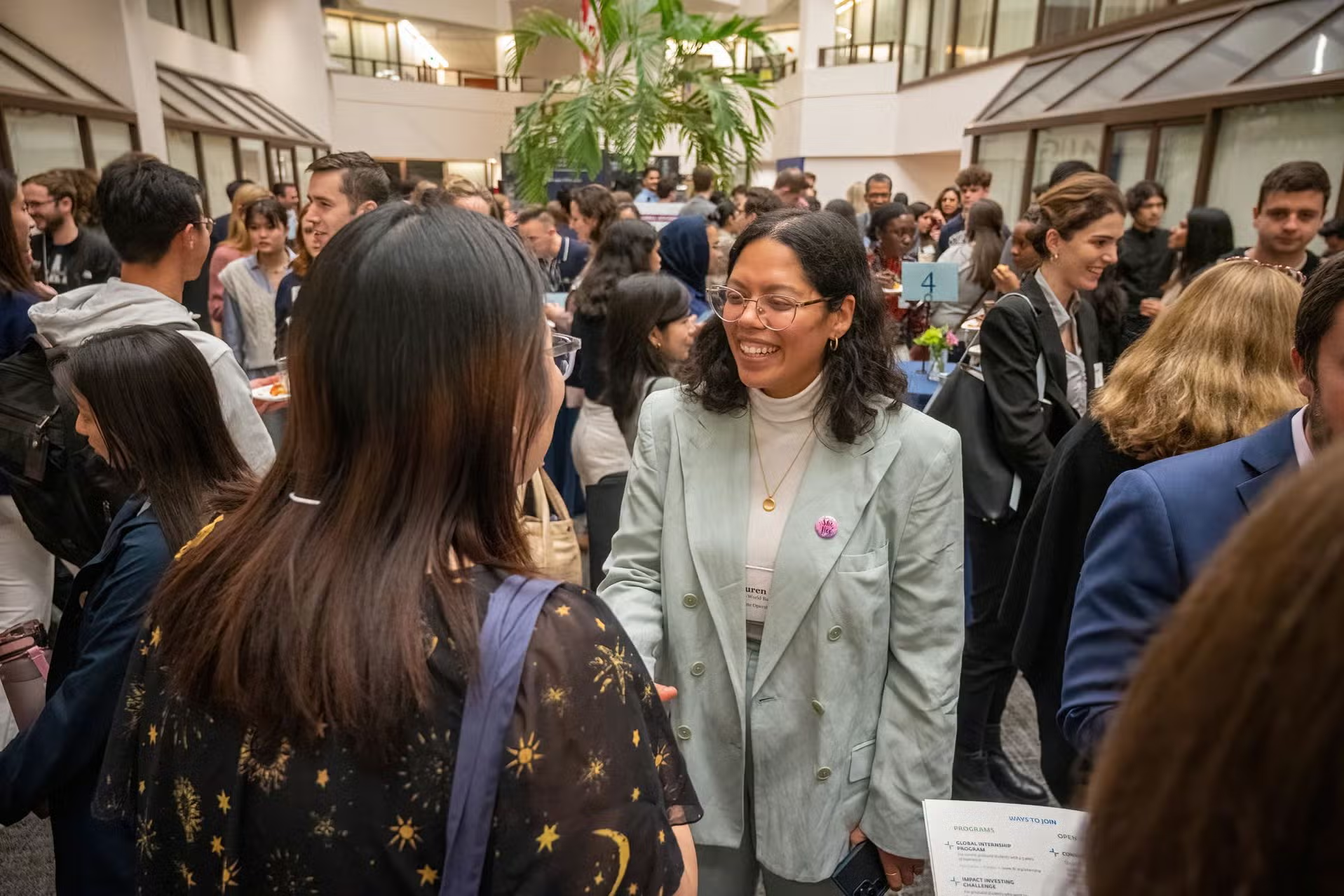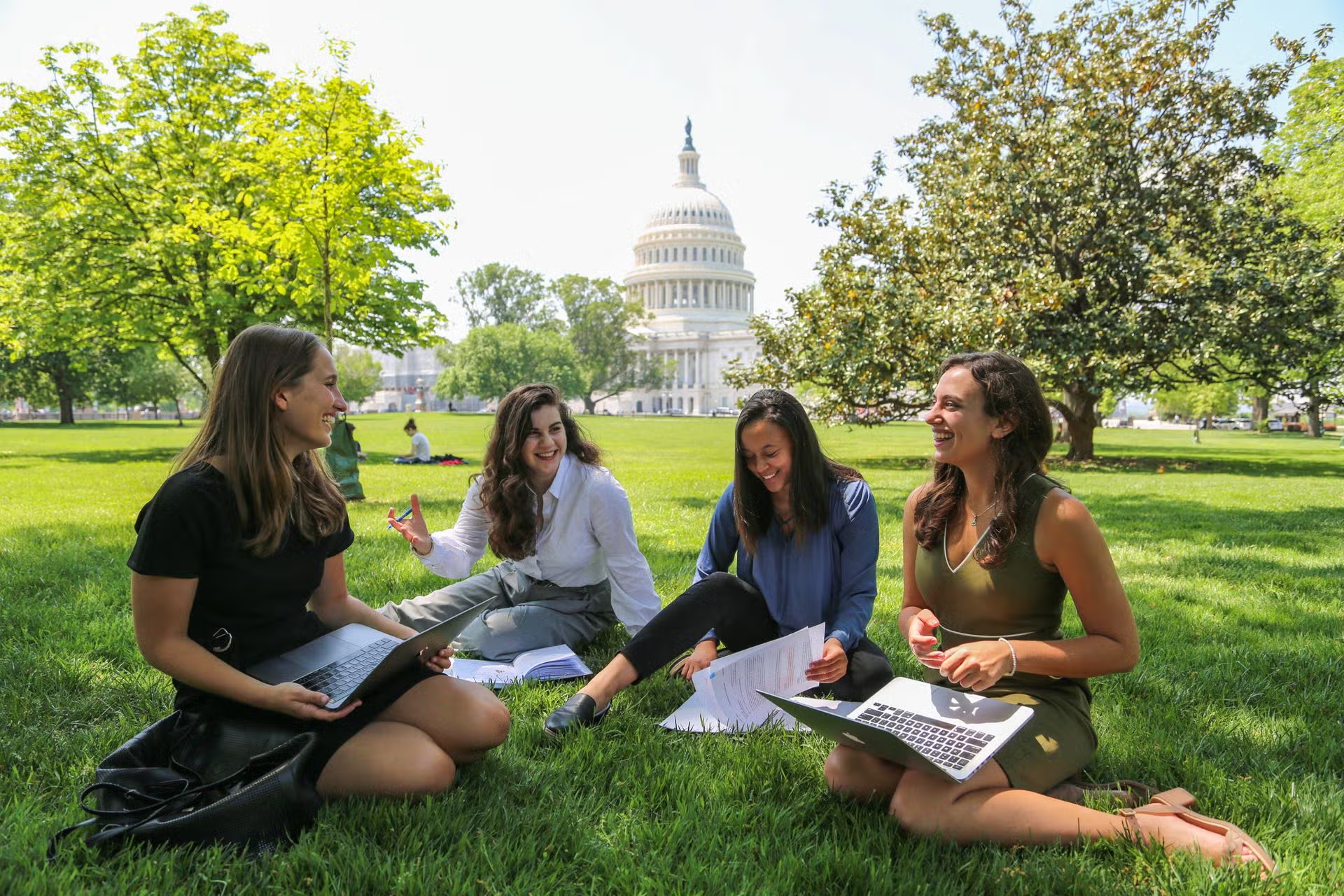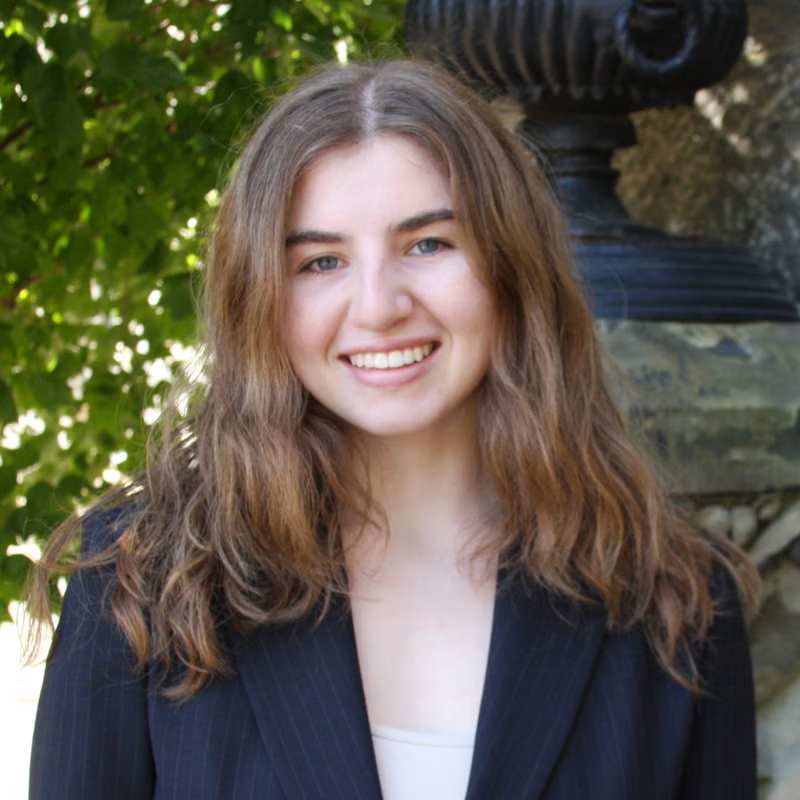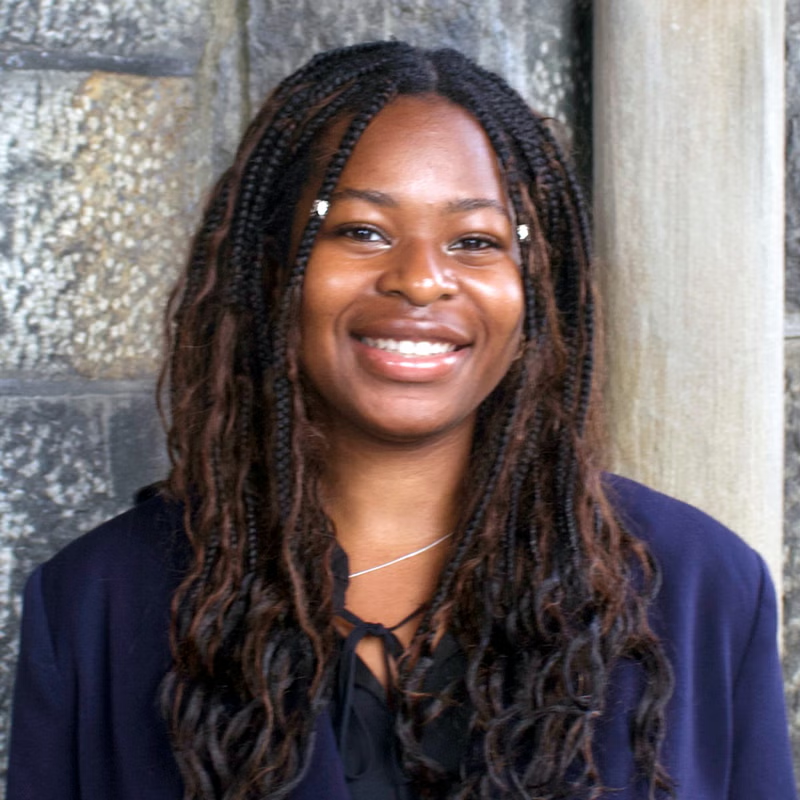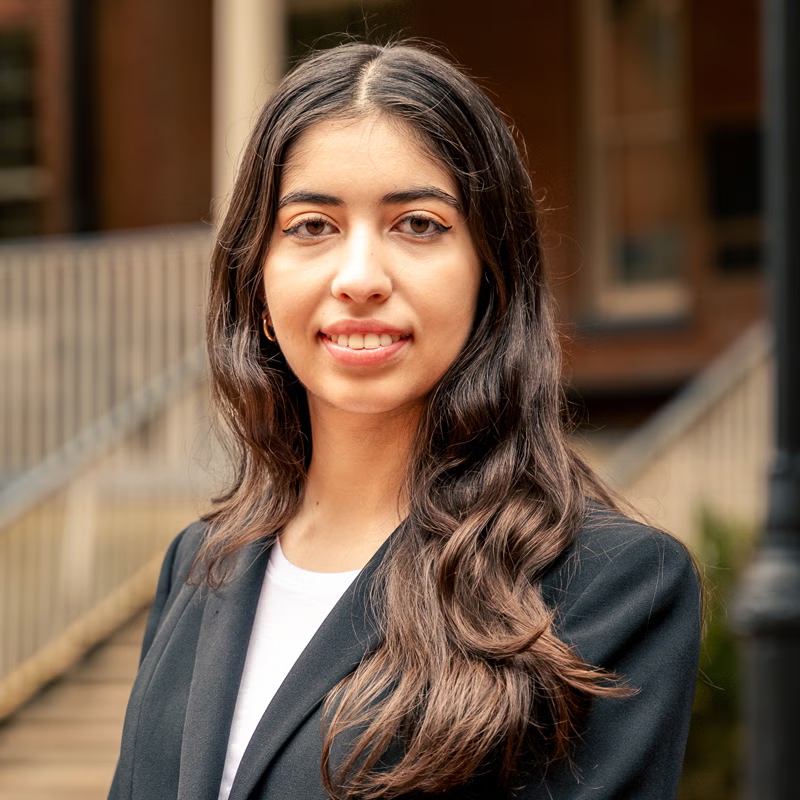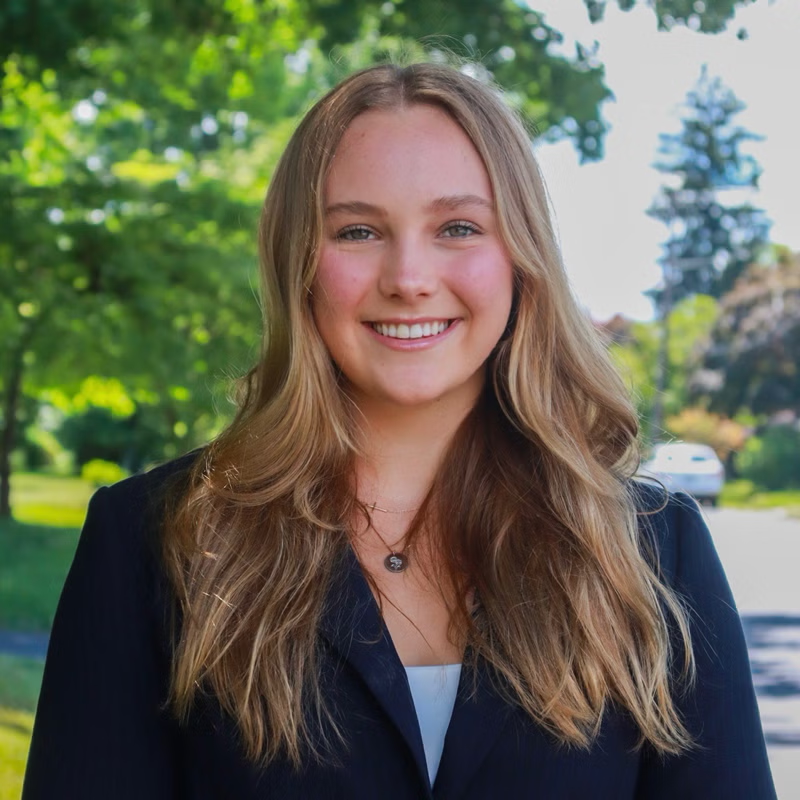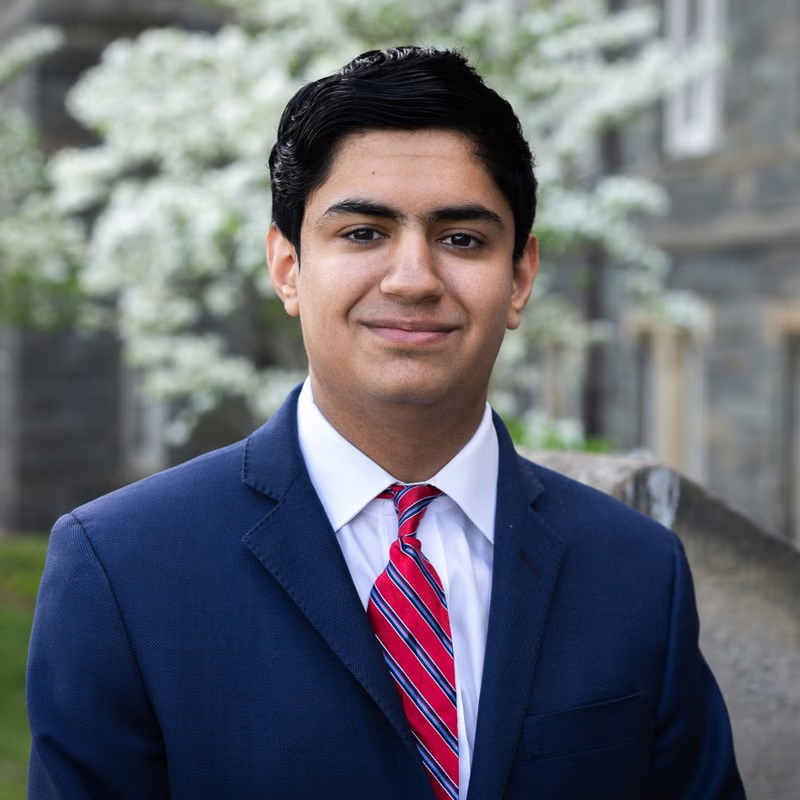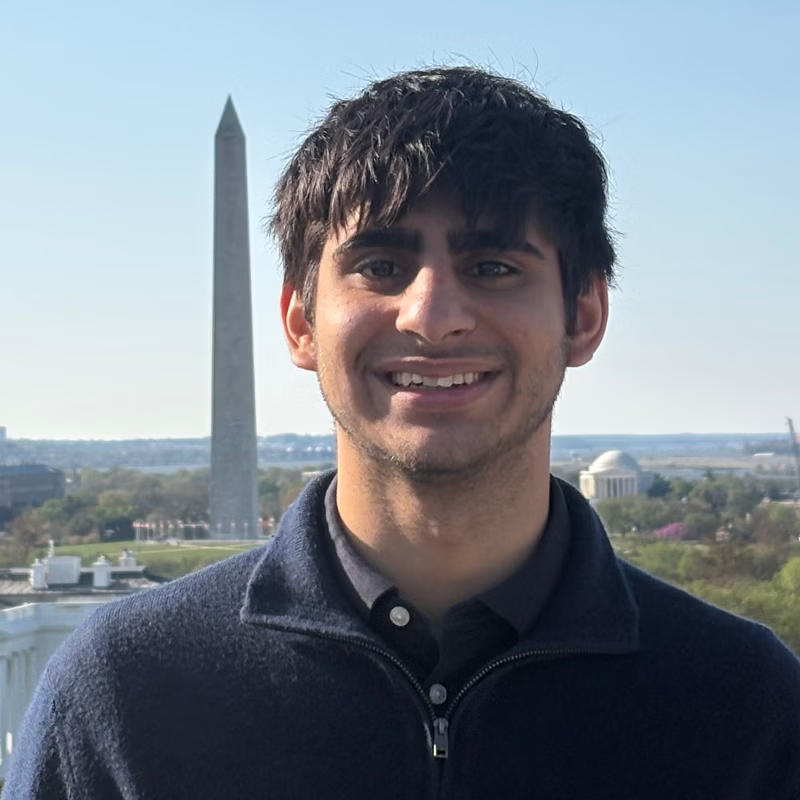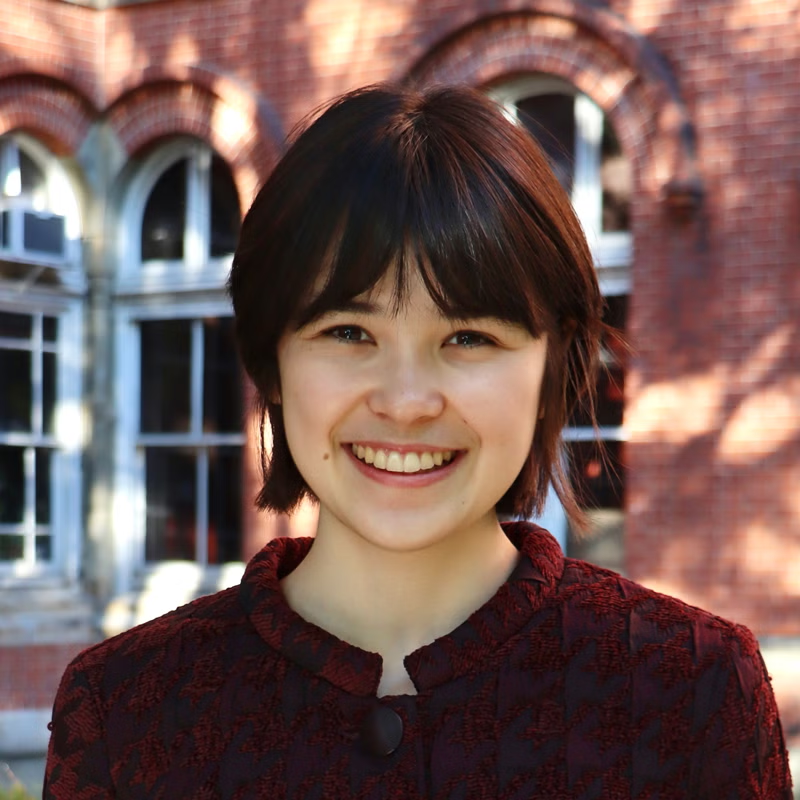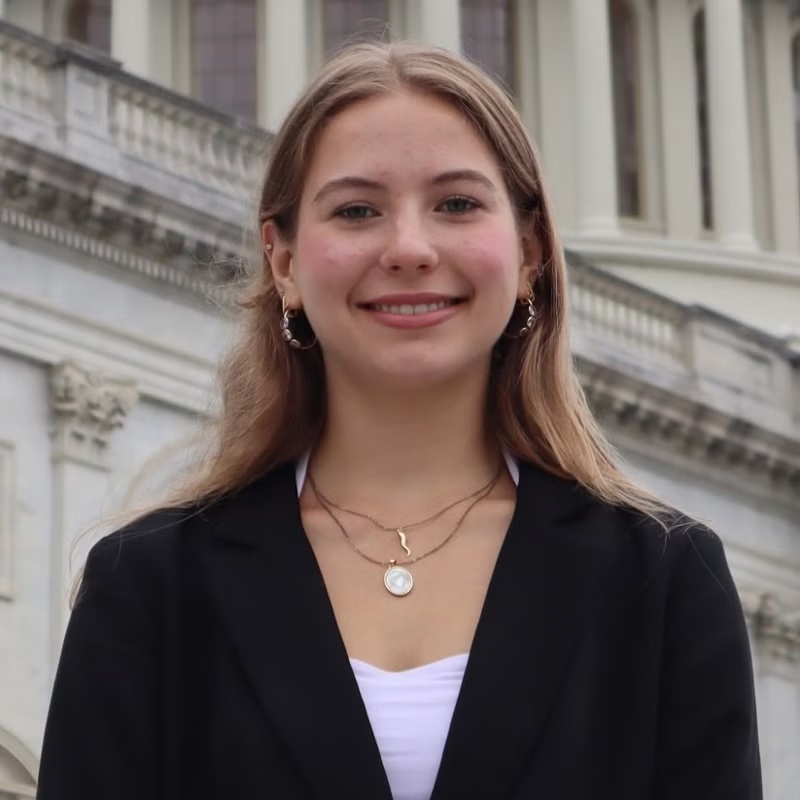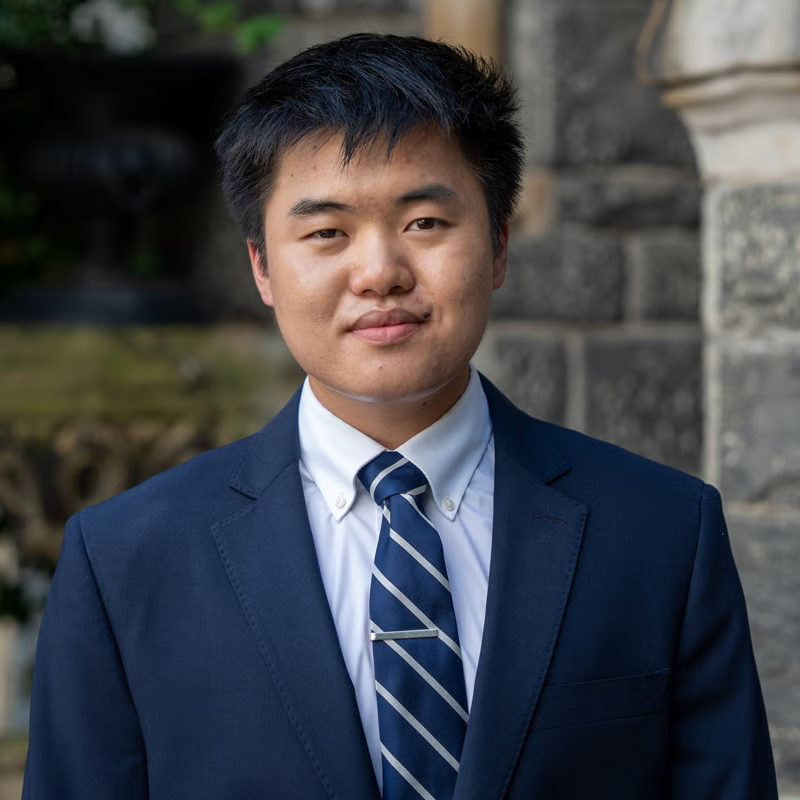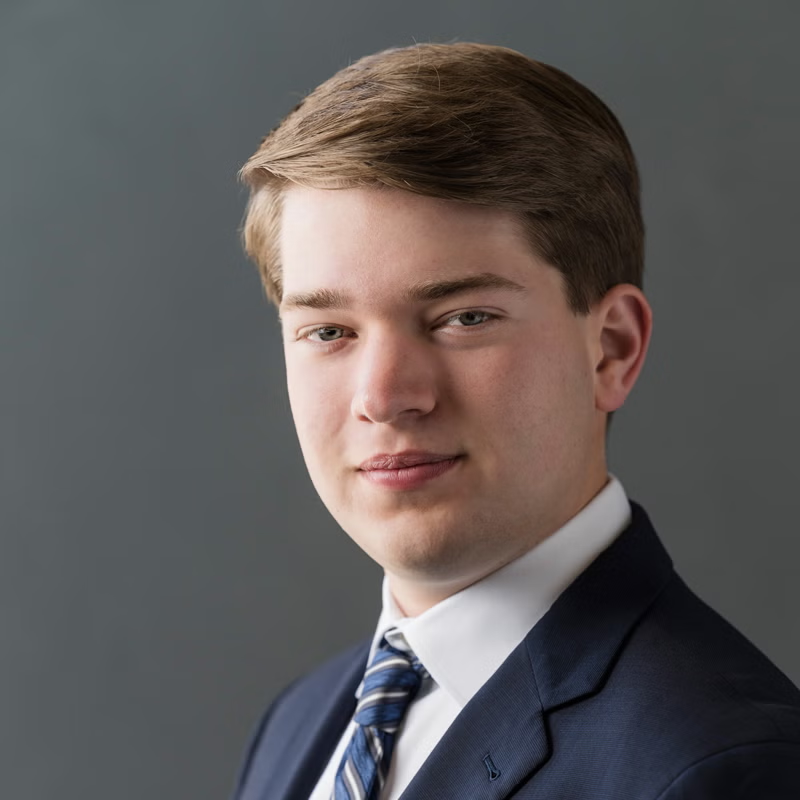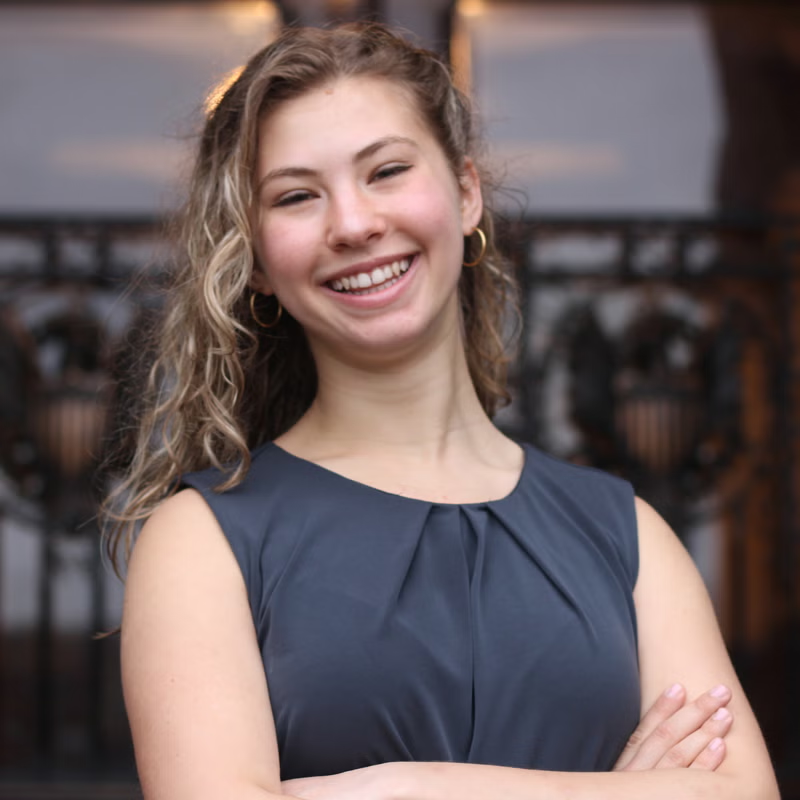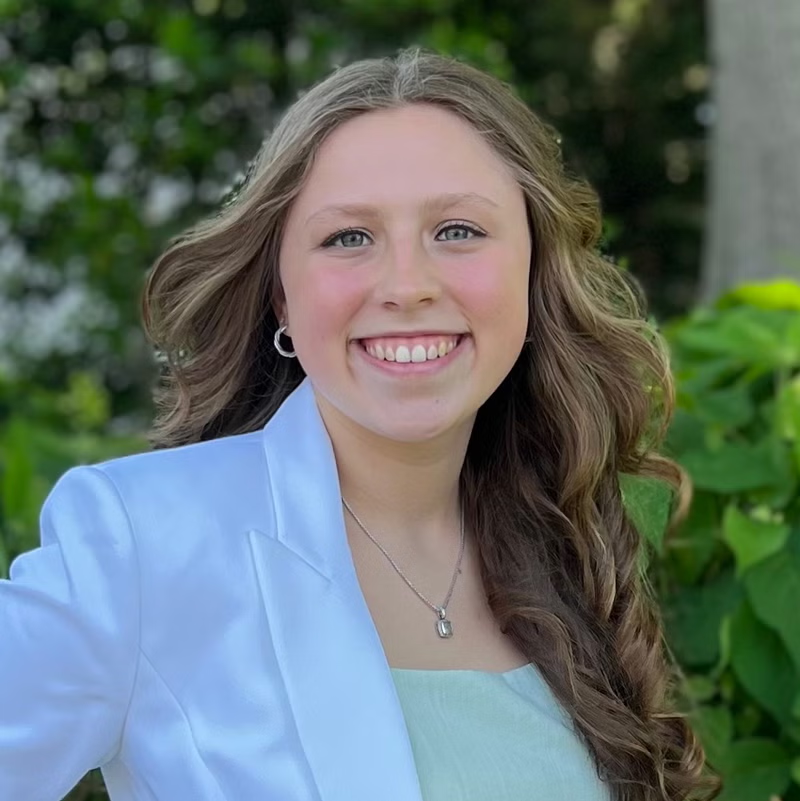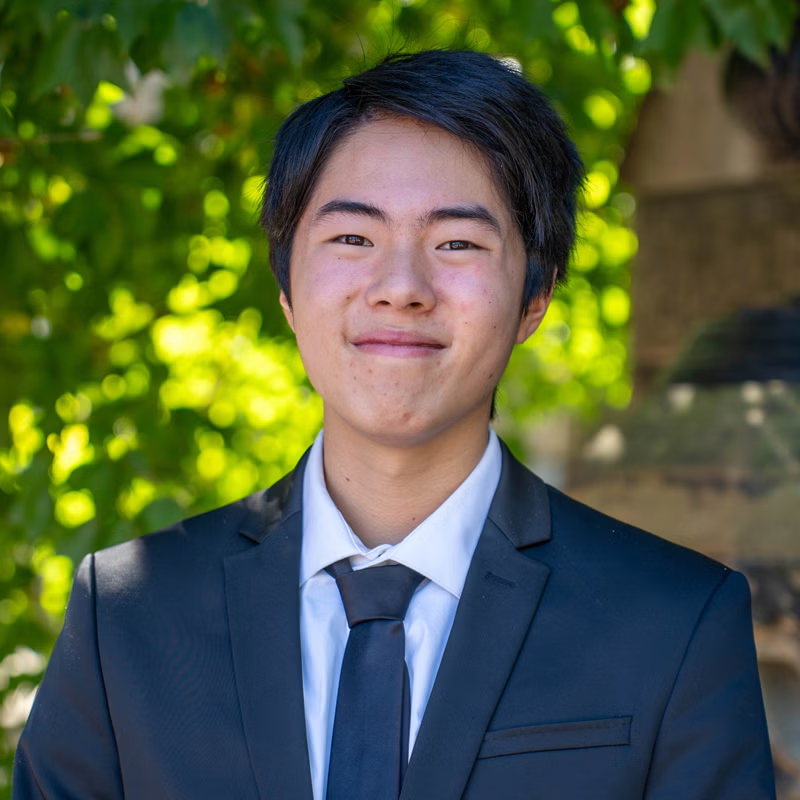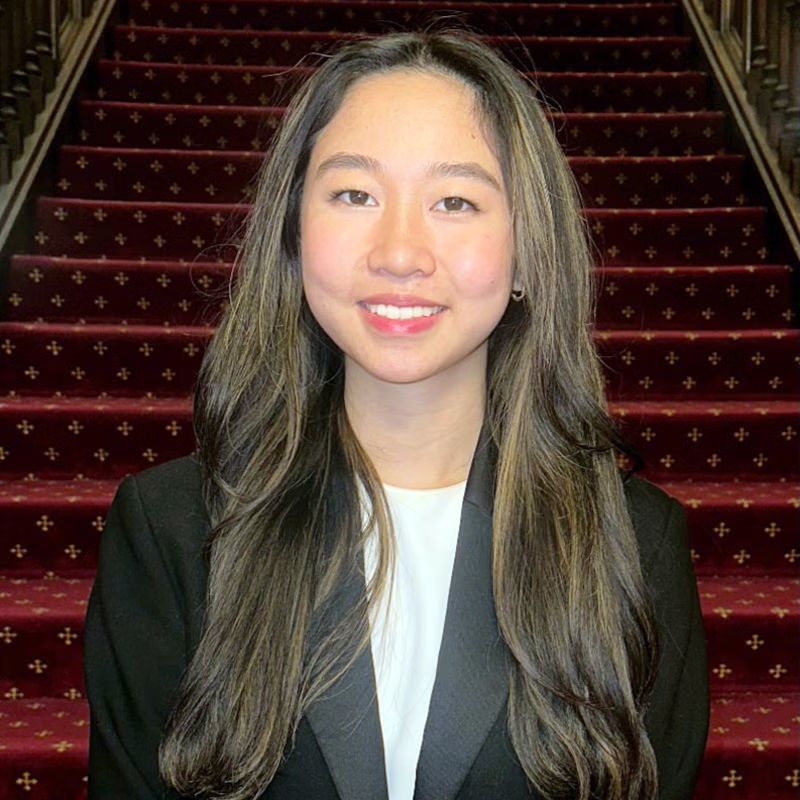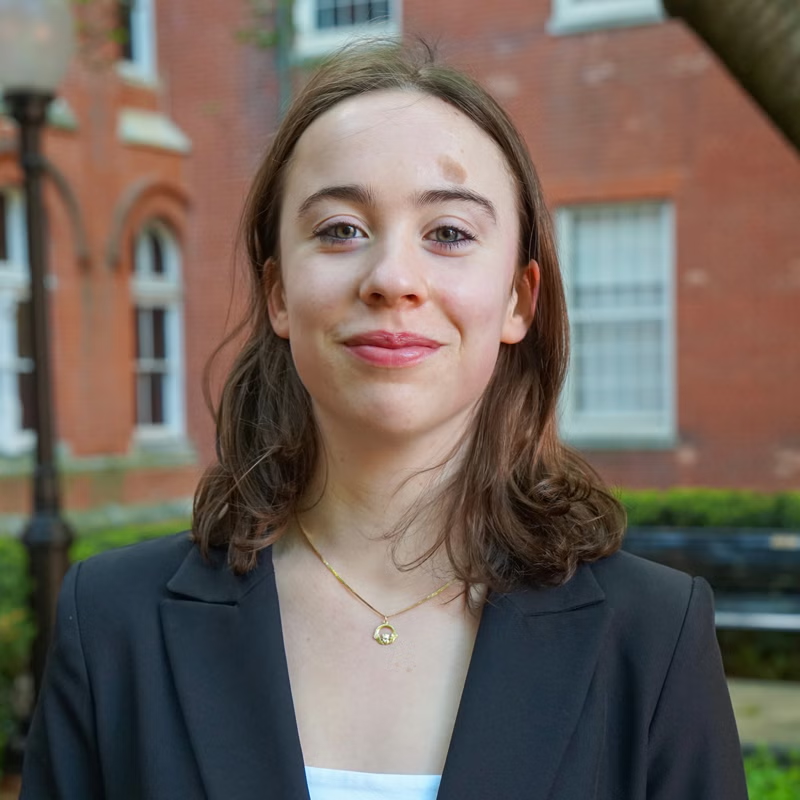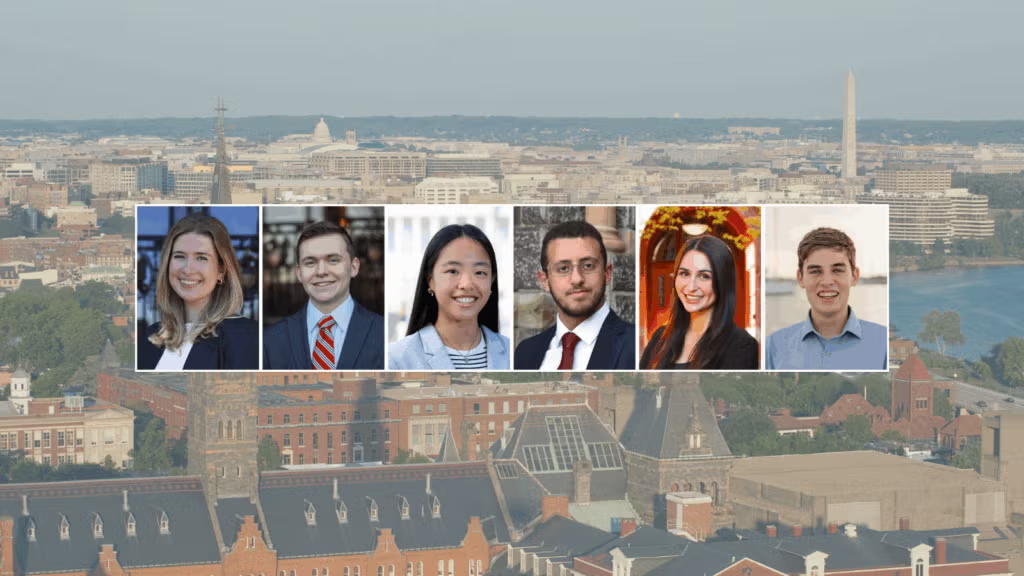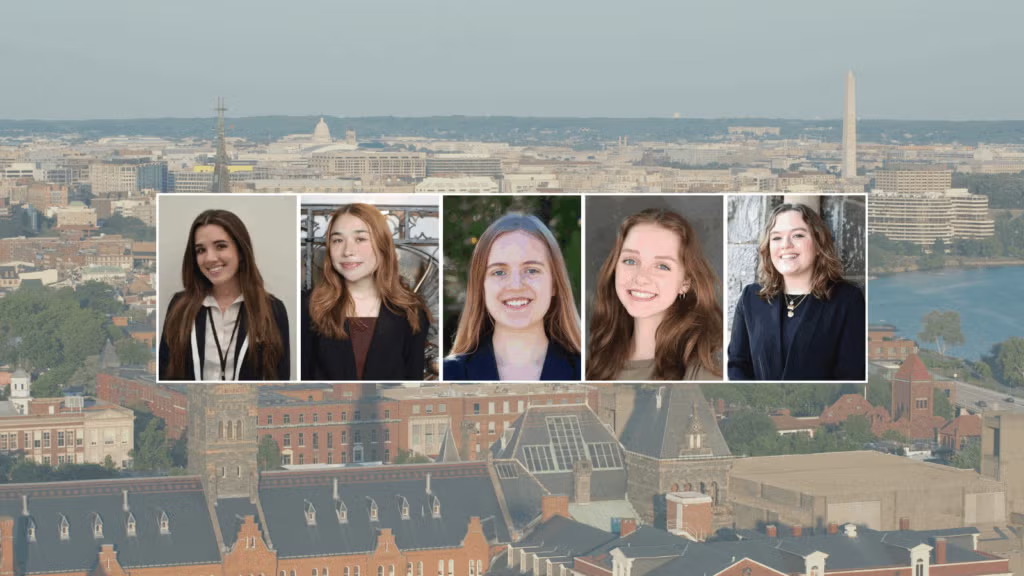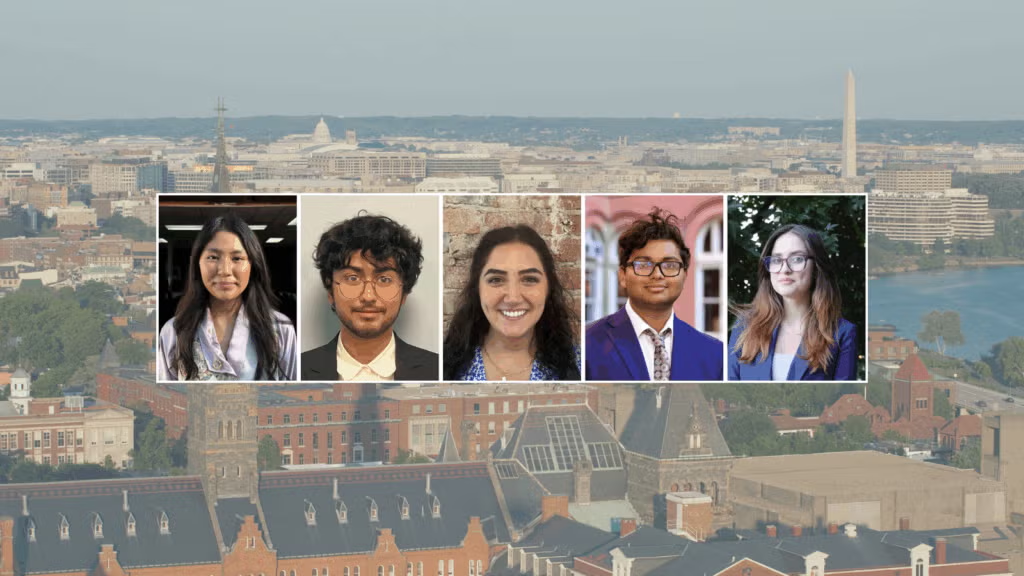Paul F. Pelosi Scholars Initiative
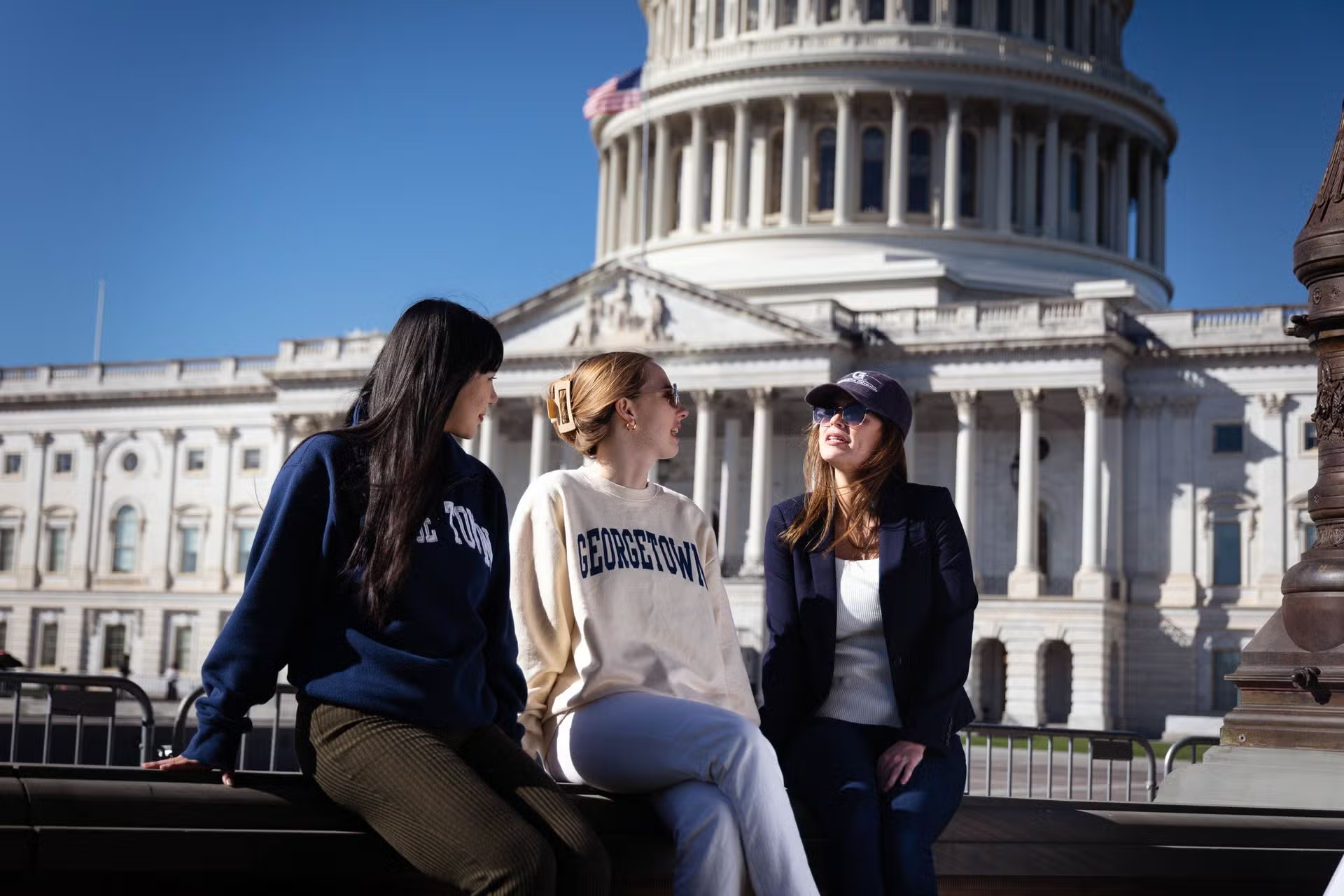
Internship support
As a Pelosi Scholar, you must complete a public service internship for the equivalent of eight full-time weeks in the summer. While you are responsible for finding your own internship, you will have unlimited access to 1:1 coaching, a cohort-only group chat and other support during both your search and internship.
Internships may not be fulfilled at for-profit organizations or include curricular education or professional training funding. We strongly discourage applications to concurrent summer fellowships.
International students are welcome to apply, but priority consideration is given to students interested in serving in the U.S. federal government or state governments.
Funding support
You’ll receive a stipend to support an unpaid, full-time summer internship in public service. The amount varies, with a minimum of $1,000. In rare cases, stipends may be approved for fall or spring internships. If your internship is paid or part-time, funding will be prorated.
Professional development and networking
The core of this program is the interaction with current public servants, experiential learning and professional development. You can expect to attend a weekly class in the spring semester (usually Fridays from 12 -1 p.m.). It includes discussions, assignments, guest speakers and formal networking and career skills sessions. This course is required. If it doesn’t fit in with your current schedule, you should not apply to be a Pelosi Scholar.
All current and alumni scholars are invited to a meeting with Paul and Nancy Pelosi.
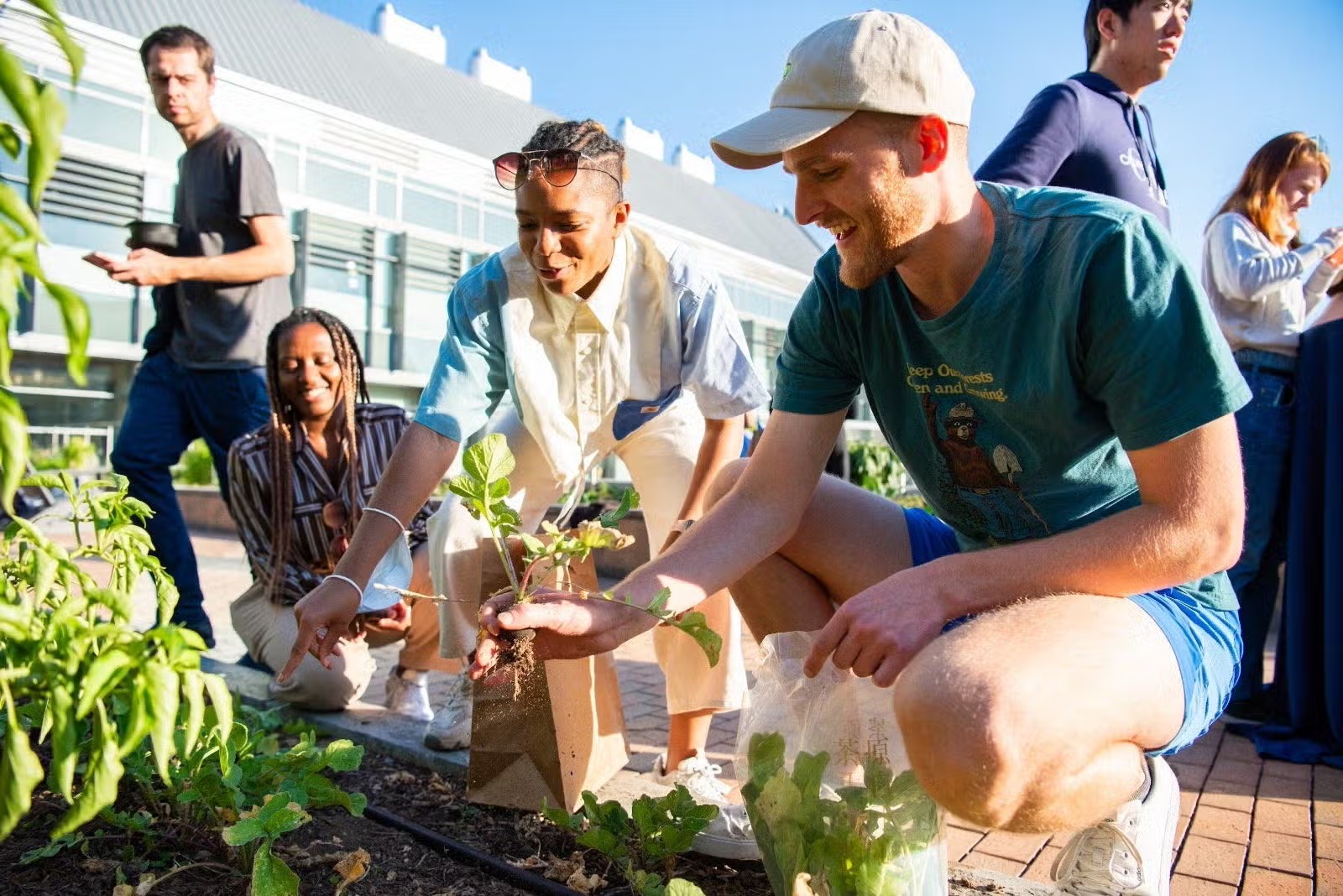
Community and service
Each Pelosi Scholar cohort joins a growing community of alumni scholars who continue to give back. After finishing your summer internship, you’ll commit to reflecting — both in writing and together as a group — on your experience. You also commit to serving as mentors to the next class of scholars and in future Pelosi Scholar cohort selection, teaching, networking and mentoring.
Site visit
You will have the opportunity to visit Capitol Hill and/or federal agencies to explore future career opportunities and connect with Hoyas working in the field.
How to apply
Applications for the 2026 Cohort will open in mid-September 2025.
If you are a sophomore or junior in the School of Foreign Service, you must submit an application package via Handshake, which includes:
- Completed application form
- Unofficial academic transcript
- Resume
- One letter of recommendation from a professor or supervisor who knows your work, character and commitment to public service
Evaluation criteria
You’ll be evaluated based on:
- Demonstrated interest in and commitment to public service
- Professional and leadership experience
- Academic performance
- Commitment to Georgetown’s values
The holistic selection process includes both the written application and an interview for semi-finalists.
Program details and requirements
Key information for applicants
Eligibility
To be eligible for the Pelosi Scholars Initiative, you must:
- Have a minimum GPA of 3.5
- Be committed to a career in public service
- Be enrolled on campus during the spring semester (fall study abroad is permitted, but spring study abroad is not)
If you’re an international student, you’re welcome to apply—your public service internship can take place either in the U.S. or in your home country. However, if you are a Laidlaw Scholar, you are not eligible to apply, due to conflicting program requirements and funding equity considerations.
Studying abroad and program participation
You may study abroad in the fall without affecting your eligibility. However, you must be on campus in the spring to participate in the program. The in-person class, mentoring, and events are essential components of the PSI experience and cannot be replicated remotely.
Time commitment
As a Pelosi Scholar, you’ll participate in a variety of activities, trainings and events throughout the spring. A key part of your commitment is enrolling in a one-credit class that meets every Friday from 9 to 10 a.m. during the semester. Attendance for the full hour is mandatory and non-negotiable—please ensure your schedule can accommodate this requirement before applying.
Public service internship
You are responsible for finding and applying to your summer public service internship. PSI provides robust support through:
- One-on-one coaching
- A group chat with curated internship opportunities
- Professional skills development sessions
- Networking events
Eligible internships include roles in federal, state, or local government, NGOs, or other service-oriented organizations. PSI has also recently expanded to include some policy think tanks, though the focus remains on direct service.
Your internship must be:
- Clearly tied to public service work
- At least 8 weeks long, or 320 hours total
- Full-time (or part-time equivalents adding up to 320 hours)
Adapting to a changing internship landscape
Even with shifts in government hiring practices, PSI Scholars have secured impactful roles across the public service spectrum. While some opportunities, especially federal ones like State Department internships, have become more limited or unpaid, the structure of PSI is designed to support you through these challenges. The stipend levels reflect this reality and ensure access to experiences that matter for your future.
Funding and stipend structure
The Pelosi Scholars Initiative offers financial support for your public service internship. Here’s how it works:
- If your internship is unpaid and full-time, you may receive up to $6,500 (based on 2023 figures; subject to change).
- If your internship is part-time or paid, you’ll receive a prorated stipend based on the duration and compensation level.
- All scholars, regardless of internship type, receive a minimum fellowship of $900.
This structure ensures you’re supported in pursuing meaningful public service work, even when traditional compensation isn’t available.
Examples of past internships
Pelosi Scholars have interned in a range of inspiring and high-impact organizations.
2025 Cohort
- Dechen Atsatsang, U.S. House Select Committee on the Chinese Communist Party
- Ophelia Bentley, Senator Jeanne Shaheen
- Bethe Bogrette, The National Institute of Civil DiscourseMar Casajuana, Dept of Treasury
- Katie Cheung, Special Competitiveness Study Project (SCSP)
- William Doran, Institute for the Study of War (ISW)
- Sophia Epley, IOM (Geneva)
- Alicja Farber, UNHCR
- Yaj Gupta, United States Study Center (Univ. of Sydney)
- Kate Halabi, Responsible Business Initiative for Justice
- Elizabeth Koenck, Dept. of Basic Education (South Africa)
- Isabelle Mansour, Atlantic Council (empowerME initiative)
- Mohamed Meshal, Dept of Commerce
- Jon Plummer, Hudson Institute
- Ava Zabelski, Negotiation Works
- Drew Zacharias, INDOPACCOM
2024 Cohort
- Ranee Brady, USAID
- Bennie Chang, DoD
- Natalie Goldwasser, Search for Common Ground
- Yulina Goto, Philly Federal Reserve
- Cynthia Lu, Zhicheng Public Interest Lawyers
- Sophia Lu, Guam Human Rights Initiative
- Benjamin Manens, Dept of Energy
- Elena Martinez, DoD
- Miles McInerney, Foreign Commercial Svc (Shanghai)
- Calla O’Neil, Armenian Natl. Women’s Basketball Team
- Abigail Rich, C4ADS
- Harnoor Sachar, Public Health Research Institute of India (PHRII)
- Nicholas Voltaggio, Dept of Treasury
- Sahar Wakilzada, USAID
- Emma Wong, EPA
- Luka Wohl, USAID (El Salvador)
2023 Cohort
- Youmna Al-Madani, DC Volunteer Lawyers Project
- Renato Llontop Calosi, Embassy of Peru in DC
- Sophie Coste, CSIS (Energy Security and Climate Change)
- Jack Gasdia, Secure Communities Group
- Elizabeth George, Dept. of State (ENR)
- Hannah Laibinis, Hope 4 Young Girls (Tanzania)
- Andrea Poma, Vital Voices
- Jupiter Huang, Arms Control Association
- Grace Parcover, Search for Common Ground
- Sanjana Ranganathan, Dept. of State
- Logan Richman, National Endowment for Democracy (Ctr for Intl Media Assistance)
- Komal Samrow, UNICEF (Turkey)
- Isabella Stratta, DoE
- Maria Almeida Vazquez, DoD
- Angela Yu, USAID
